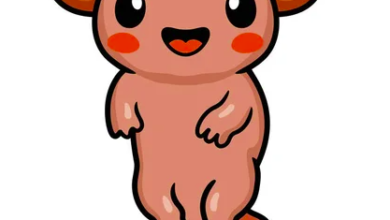
In the broadest sense, social science is the investigation of society.
Social science is an extremely expansive discipline that inspects how people cooperate with one another and how the human way of behaving is molded.
Social designs (gatherings, networks, associations)
Social classifications (age, orientation, class, station, and so on.)
Social foundations (legislative issues, religion, instruction, and so on.)
Know more Here
Humanistic viewpoint
The fundamental reason for humanism is the conviction that a singular’s mentalities, activities, and potentially open doors are formed by this multitude of parts of society.
The humanistic methodology is fourfold:
People have a place for gatherings.
Bunches impact our way of behaving.
Bunches embrace qualities that are free of their individuals (for example the entire is more noteworthy than the number of its parts).
Sociologists center around the personal conduct standards of gatherings, for example, contrasts in light of orientation, race, age, class, and so on.
beginning and definition
Albeit antiquated savants from Plato to Confucius talked about what might later become known as social science, official sociology began and was impacted by the Industrial Revolution of the mid-nineteenth hundred years.
It had seven significant organizers: Auguste Comte, W.E.B. Du Bois, Emile Durkheim, Harriet Martino, Karl Marx, Herbert Spencer and Max Weber.
Comte is viewed as the “father of humanism” as he is credited with authoring the term in 1838. He accepted that society ought to be perceived and examined, not what it ought to be, and was quick to perceive this. Understanding the world and society depended on science. Osmose Technology
Du Bois was an early American social scientist who established the groundwork for the humanism of race and identity and added to the basic examination of American culture not long after the Civil War. Marx, Spencer, Durkheim, and Weber characterized and foster social science as a science and discipline, each contributing significant hypotheses and ideas that are as yet utilized and grasped in the field.
Harriet Martineau was a British researcher and creator who was likewise major in laying out the humanistic point of view. He expounded widely on governmental issues, morals, and society, as well as the connection between sexism and orientation jobs.
Know more about what is teredo
Full-scale and Micro-social science
There are right now two fundamental methodologies: large-scale social science and miniature social science.
Full-scale social science concentrates on society overall. This approach stresses the investigation of social frameworks and populaces for an enormous scope and at an elevated degree of hypothetical reflection. Full-scale humanism manages people, families, and different parts of society, however, it generally does as such comparable to the bigger social framework in which they have a place.
Miniature social science, or the investigation of little gathering conduct, centers around the idea of regular human collaborations for little scopes. At the miniature level, societal position and social jobs are the main parts of social construction, and micro sociology depends on the continuous connection between these social jobs.
Contemporary humanistic examination and hypothesis span these two points of view.
area of social science
There are many disciplines in the area of social science, some of which are generally new. Following are a portion of the significant areas of exploration and application.
Globalization
The humanism of globalization centers around the monetary, political, and social viewpoints and ramifications of a worldwide coordinated society. Numerous sociologists center around how private enterprise and buyer products associate individuals from one side of the planet to the other, movement streams, and issues of disparity in worldwide society.
race and identity
The social science of position and identity looks at the social, political, and financial connections among standings and ranks at all degrees of society. Ordinarily concentrated on points incorporate bigotry, private isolation, and contrasts in friendly cycles among racial and ethnic gatherings.
Utilization
The social science of utilization is a subfield of social science that places utilization at the focal point of examination questions, studies, and social hypotheses. Specialists in this subfield center around the job of purchasing merchandise in our day-to-day routines, their relationship to our individual and gathering characters, our associations with others, our way of life and customs, and the ramifications of shopper ways of life.
Family
The human science of the family looks at such things as marriage, separation, kid raising, and homegrown maltreatment. In particular, sociologists concentrate on how these parts of the family are characterized in various societies and times and what they mean for people and foundations.
Social imbalance
The investigation of social imbalance analyzes the inconsistent dispersion of force, honor, and glory in the public eye. These sociologists concentrate on contrasts and disparities in friendly class, race, and orientation.
Information
The human science of information is a subfield dedicated to research and hypothesis on the socially found cycles of information development and knowledge. Sociologists in this subfield center around how establishments, philosophy, and talk (how we talk and compose) shape the method involved with coming to know the world, and the arrangement of values, convictions, sound judgment, and assumptions. Many spotlights on the association between power and information.
Demography
Demography alludes to a populace’s structure. A portion of the essential ideas investigated in demography incorporates rate of birth, richness rate, passing rate, baby death rate, and relocation. Demographers are keen on how and why this socioeconomics fluctuates between social orders, gatherings, and networks.
Wellbeing and Illness
Sociologists who concentrate on wellbeing and sickness center around the social impacts of, and cultural mentalities toward ailments, illnesses, handicaps, and the maturing system. This isn’t to be mistaken for clinical humanism, which centers around clinical establishments like clinics, facilities, and doctor workplaces as well as the connections among doctors.
Work and Industry
The social science of work concerns the ramifications of innovative change, globalization, work markets, work association, administrative practices, and business relations. These sociologists are keen on labor force patterns and how they connect with the changing examples of imbalance in present-day cultures as well as what they mean for the encounters of people and families.




